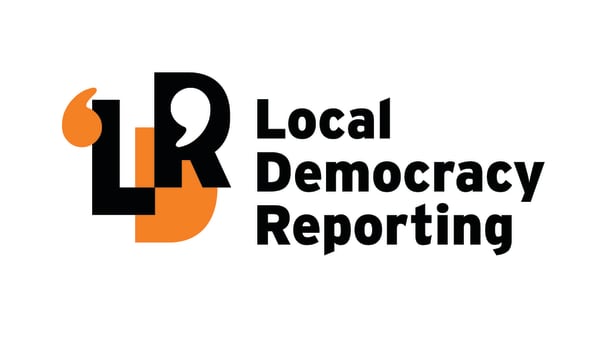 A forestry company in charge of a joint-venture plantation with the district council says damage to the city's pipeline during Cyclone Gabrielle was unavoidable because of the nature of the storm.
A forestry company in charge of a joint-venture plantation with the district council says damage to the city's pipeline during Cyclone Gabrielle was unavoidable because of the nature of the storm.
Juken New Zealand Limited (JNL) holds the consent for the district council's joint-venture forest at Waingake — land which the city's main water pipeline runs through.
During the cyclone, slash and whole trees mobilised by landslides played a significant role in damaging the 40-kilometre connection between the Waingake treatment plant and the city.
Gisborne has been in a water crisis for the past month as a result of multiple breaks to the pipeline, and restrictions are still in place for industry and residents.
The council says an investigation into the source of the debris is ongoing and it won't provide further information until it is completed.
In response to questions from Local Democracy Reporting, JNL executive manager Dave Hilliard said the cause of the pipeline failure was an “unprecedented storm” which tore both vegetation from hillsides and soil structures off the hills.
Mr Hilliard said 12 months of unseasonal rainfall in Gisborne's surrounding hills had breached defences against erosion and compromised the processes put in place by his organisation and the council to protect the pipeline.
The section of forest above the pipe was harvested in 2020 and handed back to the council in June 2021, he said.
“While there may be some slipping and discharge out of this specific area, it is understood the majority of this debris would have been caught up in the standing trees deliberately left below the harvest area and the pipeline.
“No current harvesting contributed to the water pipeline damage from JNL operations.”
Other forestry companies not in joint-venture with the council were also operating in the area, he said, and there appeared to be opening up of old slip faces, plus new mid-slope failures on their land.
Following the cyclone, council chief executive Nedine Thatcher Swann confirmed the mobilisation of whole trees and harvest waste logs played a “critical factor” in damaging the pipe, but would not say how much of the damage was caused by waste from the joint-venture forest until an investigation was undertaken.
That investigation was in its early stages, Ms Thatcher Swann said, and the council would not comment on either the source of the debris or potential enforcement action until it was concluded.
The land at Waingake was purchased by the council in 1991 from Maraetaha Incorporated.
The council established a pine plantation on the site shortly after.
Staged harvesting of those trees began in 2018, with the council committing to transform 1200 hectares back to native forest in a move aimed at securing the pipeline.
JNL says it had successfully maintained the integrity of the land for over 30 years while working with the council as a joint-venture partner.
When the pine trees planted in the early 1990s reached maturity, JNL worked together with the council on catchment controls to minimise the risk to Gisborne's water supply, especially during the high risk exposure period immediately after the trees were felled, Hilliard said.
Two years ago, a joint assessment was made to ascertain where the pipeline was exposed to danger from standing trees, with the council and JNL ultimately removing some trees deemed to be a risk to the pipeline.
There had been “land failure” in sections where native trees had been planted, but Mr Hilliard believed there was not a significant number of trees among that slip material.
The council said the criteria it used to select a forestry partner included relevant management expertise, an assurance of processing locally as much as was practicable and a commitment to the Gisborne region.
JNL is owned by Japanese parent company Wood One Co., Ltd, and has equity of $409 million, according to its 2022 annual report.
In the 2019 court ruling, Judge Dwyer described the company as having “massive forest interests in New Zealand”.
It has 40,000 ha of predominantly radiata pine plantation forest across the Wairarapa and East Coast.
Juken NZ Ltd’s history with the land at Waingake dates back to 1993 when it took over management of the site in a joint venture with Gisborne District Council.
However, the company’s relationship with the council hasn’t always been smooth sailing.
In November 2019, the council took successful legal action against JNL for breaching the Resource Management Act at Waituna Forest, south of Waingake, and was awarded $152,000 by the Environment Court.
The company pleaded guilty to discharging slash logging debris, waste logging material and sediment that later entered tributaries of Gisborne’s Mangapoike River.
But the council also received a stern word from the court for failing to monitor the resource consent it had issued JNL.
Court documents reveal that over a five- or six-year period, the district council did not undertake any inspections of the forest to ensure the company was complying with the consent it had been issued.
Its failure to do so was labelled “reprehensible and irresponsible” by Environment Court Judge Brian Dwyer.
Council chief executive Nedine Thatcher Swann said it had significantly increased its monitoring and compliance roles since 2018, and enforcement officers had inspected the Waingake plantation (Pamoa Forest) 15 times in the past five years.
The most recent inspection was made on January 5, prior to Cyclone Hale.






